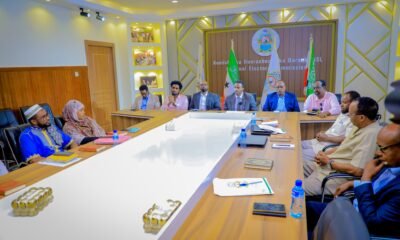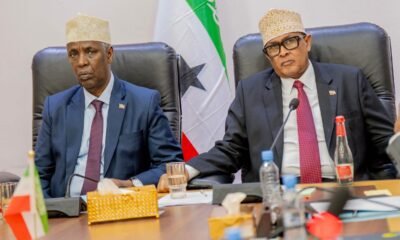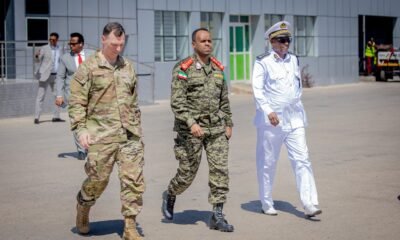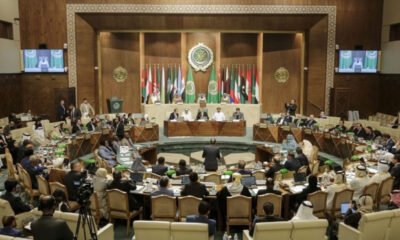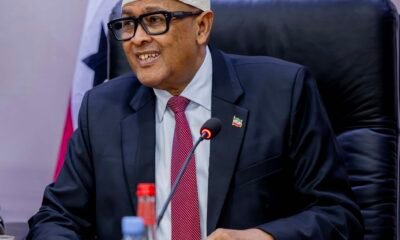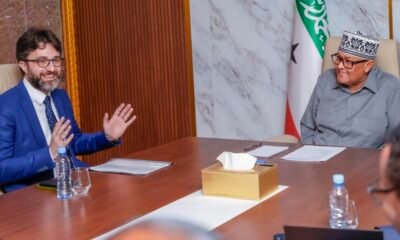Somaliland
Kenyan workers find opportunity in Somaliland: A growing frontier

With thousands of Kenyans employed in Somaliland, the nation offers a beacon of hope for career growth and financial independence.
Employment opportunities in Somaliland are providing a lifeline for thousands of Kenyans seeking work abroad. In 2024, an estimated 3,000 Kenyans moved to Somaliland, joining over 10,000 who have already established careers in fields such as banking, telecommunication, hospitality, and construction.
As Kenya grapples with an unemployment rate of 5.7%, marginally higher than the previous year’s 5.6%, Somaliland’s growing economy offers a much-needed alternative. According to Abdirashid Duale, CEO of the Dahabshiil Group, Kenyans are excelling in Somaliland due to their professionalism, education, and dedication. “A lot of our colleagues are from Kenya… highly educated and hardworking. We want more of them to come,” Duale remarked, emphasizing the strong demand for Kenyan expertise.
Kenyan professionals have not only found work but are contributing to major projects in Somaliland. For instance, many Kenyans are involved in constructing Hargeisa’s tallest buildings, working alongside local and international teams. These opportunities are providing Kenyans with rewarding careers and fostering financial independence.
The influx of Kenyan workers into Somaliland is also strengthening diplomatic and economic ties between the two nations. As more Kenyans thrive in Somaliland’s diverse sectors, the relationship between Kenya and Somaliland continues to grow, offering hope to those seeking brighter futures beyond their borders.
The emerging partnership underscores the value of collaboration in addressing regional employment challenges and opens the door for expanded economic cooperation. For many Kenyans, Somaliland represents not just an opportunity for work but a chance to build a more stable and prosperous life.
Somaliland
Somaliland Pushes Elections Back by Ten Months
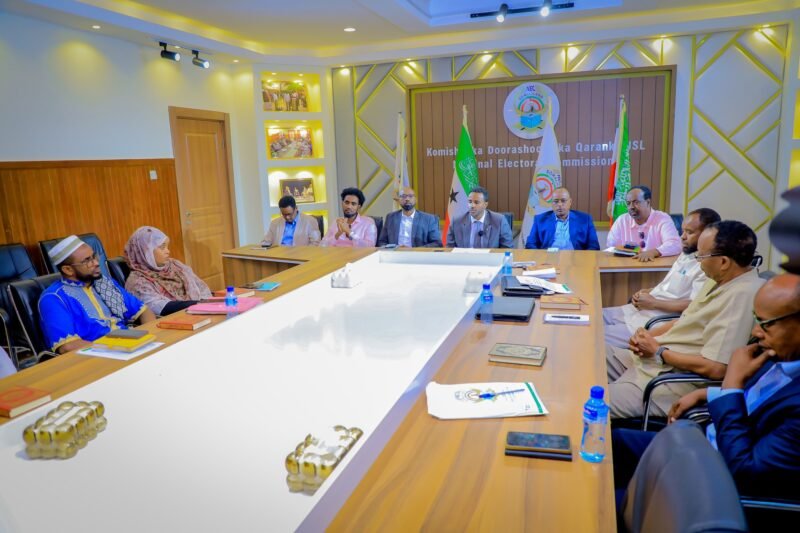
Somaliland Delays Parliamentary and Local Elections, Citing Drought, Security and Political Disputes.
The Somaliland Electoral Commission’s decision to postpone the House of Representatives and Local Government elections marks a critical moment for the country’s democratic trajectory. Scheduled for May 31, 2026, the vote has now been pushed back by ten months, a move the Commission says is driven not by political convenience but by hard constraints on the ground.
At the center of the decision is a convergence of pressures that have become increasingly difficult to manage simultaneously. Prolonged drought has disrupted large swathes of the country, affecting population movement, livelihoods and the basic logistics required for voter registration and polling. In parallel, localized security challenges have raised concerns about the Commission’s ability to guarantee safe access to polling stations and election materials in all regions.
Political disagreements have compounded those challenges. While the Commission did not specify the nature of the disputes, the reference reflects a familiar pattern in Somaliland politics: unresolved tensions over process and timing that can undermine confidence if elections proceed without broad consensus.
By invoking its constitutional mandate under the General Elections and Voter Registration Act, the Commission is attempting to anchor the postponement firmly in law. The language of the statement is deliberate. This is presented as a “special extension,” not an open-ended delay, and as a measure designed to protect the integrity of the vote rather than suspend it.
The ten-month extension creates a narrow but consequential window. During this period, the Commission says it will complete outstanding technical work on voter registration, finalize election materials, and strengthen operational readiness. In effect, it is buying time to ensure that when elections do take place, they meet both domestic constitutional standards and international expectations of credibility.
Still, the decision carries political risk. Election delays, even when legally justified, can feed public suspicion in a region where democratic processes are often under strain. For Somaliland, which has long presented itself as a relative democratic exception in the Horn of Africa, maintaining public trust is as important as managing logistics.
The Commission appears acutely aware of that balance. Its emphasis on legality, transparency and accountability is aimed at preempting accusations that the delay serves partisan interests. Whether that assurance holds will depend less on words than on visible progress during the extension period.
The next ten months will therefore function as a test. If the Commission uses the time to deliver tangible improvements in voter registration, security coordination and political dialogue, the postponement may ultimately strengthen Somaliland’s democratic institutions. If progress stalls, the delay could deepen skepticism and sharpen political competition.
For now, the message from the Electoral Commission is clear. The cost of proceeding under unfavorable conditions is judged to be higher than the cost of waiting. Somaliland is choosing caution over speed, betting that credibility is better preserved by delay than by a flawed vote.
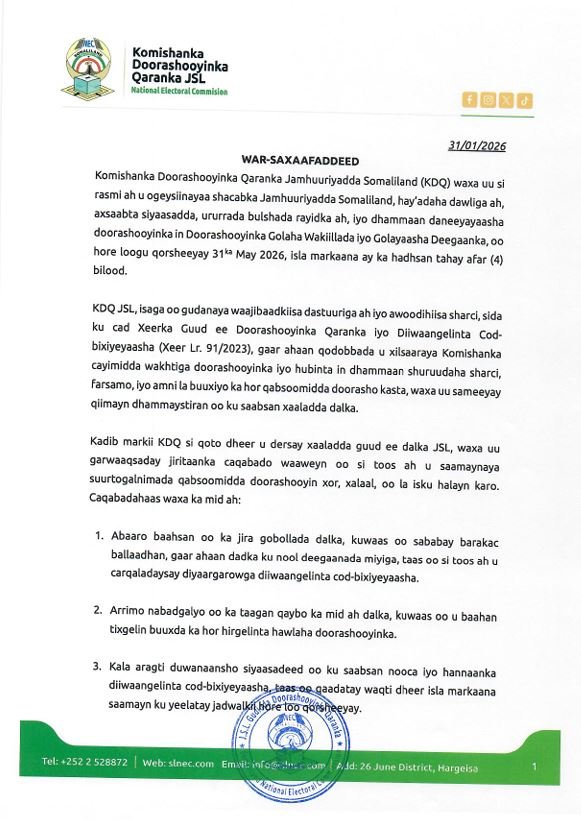
Somaliland
How Irro Is Engineering Somaliland’s Moment of Recognition
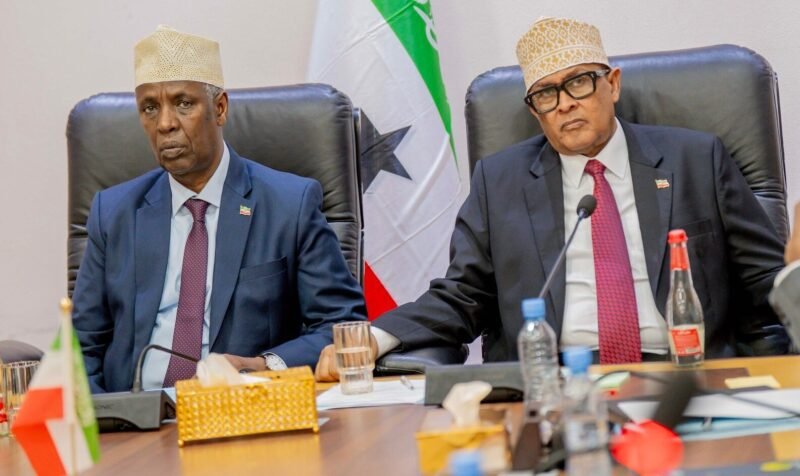
Irro’s Cabinet Signals Governance Shift as Somaliland Moves From Recognition Campaign to Statecraft.
Inside the Somaliland Presidential Palace in Hargeisa, the 52nd session of the Council of Ministers carried a tone markedly different from past cabinets shaped by diplomatic aspiration. This was not a government pleading for acknowledgment, but one organizing itself to wield it.
Presiding over the meeting, President Abdirahman Mohamed Abdullahi (Irro) convened a cabinet that increasingly resembles a state preparing for sustained international engagement. The agenda was sober and technical: internal security, fiscal discipline, institutional coordination, and public communication. These are not the rituals of symbolic politics. They are the mechanics of sovereignty.
The security briefing set the tone. Interior and National Security Minister Abdalla Mohamed Arab described Somaliland as secure “at all levels,” but introduced a notable recalibration in language. Diplomatic progress, he warned, has expanded Somaliland’s circle of adversaries. Recognition, in this framing, is not an endpoint but a multiplier of risk. The call for tighter cooperation between institutions and citizens reflects an administration that sees internal cohesion as the first line of defense for external legitimacy.
If security is the shield, finance is the engine. Finance Minister Abdullahi Hassan Adan reported that January 2026 revenue targets are being met—an early but essential signal to international partners assessing Somaliland’s economic credibility. More consequential than the figures themselves was the rollout of a unified government accounting system. By standardizing financial records across ministries and training staff through the National Institute of Accounting, the Irro administration is moving to dismantle the fragmentation that has long undermined state efficiency.
This push is inseparable from Somaliland’s economic spine: the Berbera corridor. Continued expansion of the port, in partnership with DP World, remains the centerpiece of national economic strategy. In cabinet discourse, Berbera is no longer just infrastructure—it is leverage, anchoring Somaliland’s relevance to Red Sea trade and regional supply chains.
Beyond hard security and finance, the session addressed the quieter infrastructures that sustain statehood. Education Minister Ismail Duale Yusuf outlined preparations for the 8th Joint Education Sector Review, emphasizing equitable access and modern technology. The message was clear: recognition without human capital is hollow.
Health Minister Dr. Hussein Bashir Hirsi detailed a rapid response to fever outbreaks in multiple regions, deploying medicines and medical personnel. The subtext was unmistakable—state capacity must be visible not only in diplomacy, but in emergencies that test public trust.
Regional balance emerged as another strategic priority. Minister Kaltun Sh. Hassan Abdi introduced a Regional Development Framework aimed at ensuring that the dividends of recognition reach beyond Hargeisa. In a political system where marginalization can quickly become destabilizing, balanced development is not charity; it is risk management.
Perhaps the most revealing intervention came from Minister of the Presidency Khadar Hussein Abdi, who pressed for a “unified voice” across government. In a media environment saturated with misinformation, the administration plans structured communication training for senior officials. This is not about spin. It is about narrative discipline at a moment when contradictions can be exploited by opponents of Somaliland’s statehood.
As the session closed, President Irro returned to first principles. Recognition, he said, is a national goal rooted in self-determination—but it must be defended through competence. Accounting systems, regional planning, crisis response, and message coherence are now instruments of diplomacy.
The signal from the 52nd Council of Ministers was unmistakable. Somaliland is no longer merely arguing that it deserves recognition. Under Irro, it is behaving like a state that expects to be judged by how it governs once it has it.
Analysis
Why Somaliland Now Sits at the Center of Global Strategy
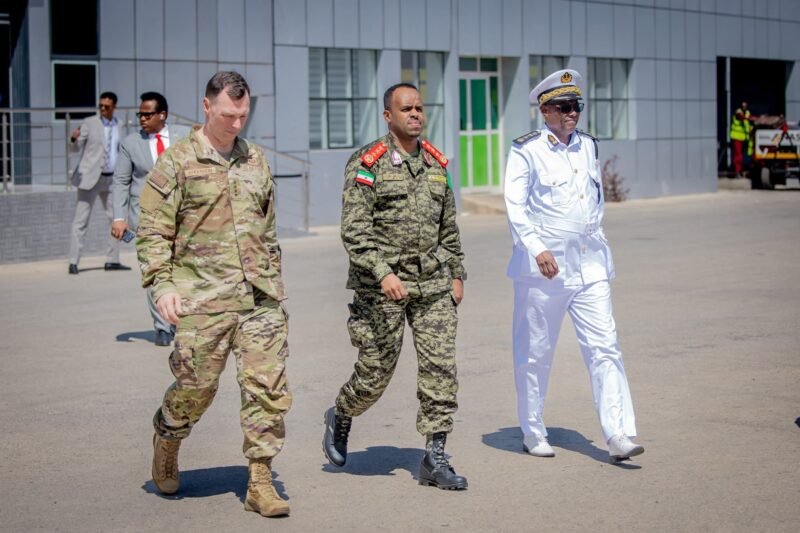
Ports, Power, and the Red Sea: Why Somaliland Now Sits at the Center of Global Strategy.
Somaliland sits beside the Bab el-Mandeb, a maritime chokepoint so critical that its geography transcends regional relevance and becomes a lever of global power. In today’s geopolitical climate, the Red Sea is rapidly evolving into a corridor of coercion, where the ability to keep transit open determines the flow of trade, energy, and strategic timelines. This is not a localized contest but a global one, and the absence of sustained Western engagement is quietly opening space for revisionist powers to shape the rules.
China, Russia, and Turkey are steadily expanding their footprint across the Horn of Africa, converting presence into basing options and diplomatic gravity. Their method is not built on democratic persuasion but on structural entanglement: ports that double as political leverage, security dependencies that translate into elite patronage networks, and narratives that rebrand coercion as partnership.
The challenge they pose to the West is blunt—either compete for these chokepoints or consent to being governed by them.
For too long, Western policy has treated Somaliland as a diplomatic anomaly rather than what serious strategists recognize: essential terrain. International recognition remains trapped in procedural inertia, but on the ground Somaliland operates as a functioning, secure polity. In contrast to Somalia’s ongoing struggle with terrorism, Somaliland has cultivated internal stability capable of supporting durable partnerships.
That stability carries regional consequences. It offers Ethiopia—landlocked, rapidly growing, and precariously dependent on Djibouti—a critical outlet through the Berbera corridor, reducing the vulnerability of a national economy exposed to chokepoint politics.
Here lies a rare strategic opening for the United States. Somaliland has signaled, through institutional development and a market-oriented outlook, that it is prepared to integrate into a rules-based trade and security architecture. U.S. recognition should be understood not as diplomatic charity but as strategic alignment with the entity that actually governs and secures the territory.
Prolonged ambiguity does not preserve neutrality; it rewards adversaries who entrench influence without waiting for perfect paperwork.
That alignment is further reinforced by an emerging convergence between Somaliland, the United Arab Emirates, and Israel. Each contributes a distinct pillar to regional stability: Somaliland supplies the geography and resource potential; the UAE brings capital and logistical sophistication; Israel offers security innovation and technological expertise in water and agriculture—capabilities essential for sustaining a desert economy. Together, they raise the operational costs for any hostile actor seeking to manipulate the Red Sea corridor.
Taiwan’s engagement adds another revealing dimension. By bypassing traditional diplomatic constraints, Taipei has helped build Somaliland’s digital and health infrastructure, demonstrating that in contested environments, influence flows most durably from those who expand tangible state capacity. It is a model of functional diplomacy adapted to a competitive era.
Ultimately, the traditional diplomatic map is being replaced by one defined by logistics and infrastructure. The United States must move beyond viewing the Horn of Africa as a zone of episodic crisis and recognize it as a primary theater of strategic competition. That means deepening maritime security cooperation, backing transparent investment frameworks, and accepting a simple reality: if the West remains absent, the Red Sea corridor will not stay neutral. It will become hostile by default.
Power today speaks through ports and corridors. And nowhere is that language more fluently articulated than in Somaliland.
Somaliland
Fake Adviser Exposed: Presidency Moves to Shut Down False Claims
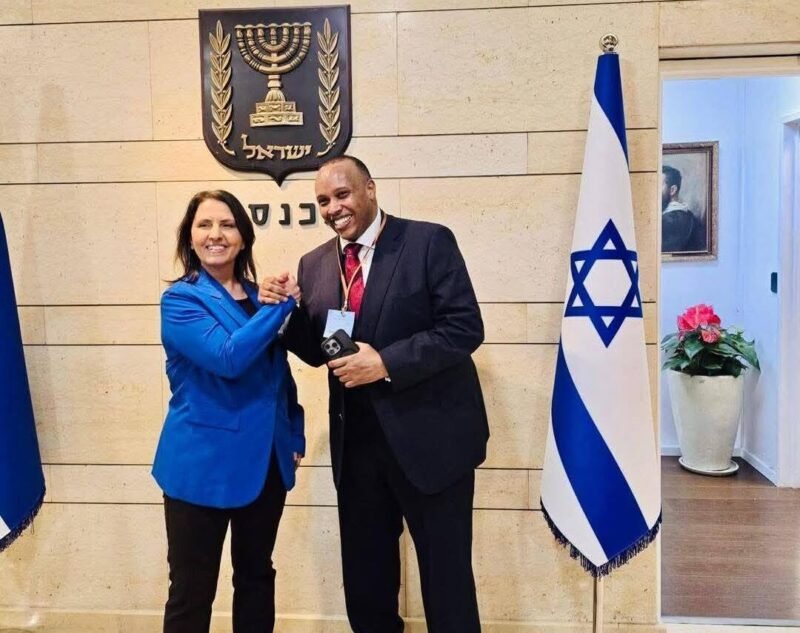
Somaliland Presidency Denies Adviser Claim by Ibrahim Yusuf After Israel Trip.
The Somaliland Presidency has publicly denied claims by Ibrahim Yusuf that he holds an official advisory role to President Abdirahman Mohamed Abdullahi Irro, following his recent trip to Israel where he reportedly introduced himself to Israeli media as a presidential adviser.
According to information obtained by WARYATV through Somaliland insiders, Ibrahim Yusuf is not a government official and does not hold any formal position within the Somaliland administration. Despite this, Israeli media outlets described him as an adviser to the Somaliland president after he presented himself as such during engagements in Israel.
Following an internal review, the Presidency issued a formal warning to Yusuf, cautioning him against misrepresenting his status and falsely claiming a government role.
President Abdirahman Mohamed Abdullahi Irro addressed the matter directly on Sunday in Hargeisa, stating that falsely claiming a position within the government is “an embarrassment to the individual and the country as a whole.”
“It is unacceptable for anyone to present themselves as part of the government without appointment,” the president said, underlining that official positions must be earned through proper legal channels and not self-declared.
Presidential Spokesman Hussein Ige also commented on the issue, telling the media that it is “inappropriate and misleading for anyone to claim a position they do not hold,” and warned that such actions could undermine the credibility of Somaliland’s institutions at a sensitive diplomatic moment.
The clarification comes at a time when Somaliland is experiencing heightened international visibility following recent diplomatic engagements, including recognition by Israel and the president’s participation in the World Economic Forum in Davos.
Officials emphasized that Somaliland’s foreign engagements are strictly conducted through formally designated representatives and that unauthorized individuals claiming official status risk damaging the country’s international reputation.
WARYATV understands that the Presidency is reinforcing internal protocols to prevent similar incidents, as Somaliland seeks to project institutional credibility and discipline in its expanding international diplomacy.
Comment
Arab League Mobilizes Against Somaliland
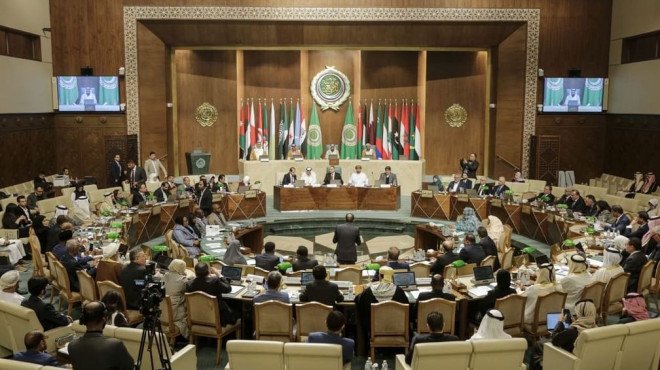
Arab Parliament Aligns With Somalia Against Somaliland in Post-Recognition Diplomatic Escalation.
The Arab Parliament’s declaration in Cairo rejecting Somaliland and pledging political action in support of Somalia marks a familiar reflex in Arab League diplomacy: preserve inherited borders first, question governance later.
Issued during the opening of its second general assembly session, the statement framed Somaliland’s emergence — and Israel’s recognition — as violations of “sovereignty” and “territorial integrity,” invoking non-interference while simultaneously endorsing active political mobilization against a self-governing state that has existed for more than three decades.
This contradiction is not accidental. It reveals the enduring preference within Arab institutions for juridical continuity over political reality — even when that continuity rests on a state apparatus that remains fractured, militarily dependent, and diplomatically reactive.
The timing matters. Israel’s recognition of Somaliland punctured a long-standing taboo in regional diplomacy: that the Horn of Africa must be filtered exclusively through Mogadishu. The Arab Parliament’s response is less about Somaliland itself than about containing the precedent. If one external actor can legitimize Somaliland, others may follow. Cairo’s message, therefore, is not aimed at Hargeisa alone — it is directed at every capital contemplating engagement beyond Somalia’s federal framework.
Yet this mobilization exposes more weakness than strength.
Somalia’s push for Arab backing arrives as the global narrative around failed governance is shifting. At Davos, U.S. President Donald Trump’s rhetoric reclassified chronic state failure not as a humanitarian dilemma but as a strategic liability. In that reframing, Somalia ceases to be a symbol of victimhood and becomes a case study in unmanaged sovereignty.
That shift matters deeply for Somaliland.
As Western policymakers harden their stance against exporting instability through migration and aid dependency, space opens for alternative African narratives — those rooted in territorial control, security provision, and institutional continuity. Somaliland fits that model. Somalia does not.
Mogadishu presents the Arab Parliament’s statement as a diplomatic victory. In reality, it highlights the fragility of its claim. The need to summon collective denunciations is itself evidence of declining unilateral authority. Sovereignty that requires constant reaffirmation is sovereignty under question.
Meanwhile, Somalia’s strategic alignment is narrowing. Its deepening reliance on Turkey and Saudi Arabia, combined with the breakdown of its partnership with the UAE, signals a retreat into patronage-based diplomacy rather than diversified engagement. Abu Dhabi’s recalibration is instructive: maritime security, energy corridors, and Red Sea stability demand partners who control territory and honor agreements. Somaliland does both.
Claims over Berbera, Bosaso, and Kismayo increasingly ring hollow in a diplomatic system that measures legitimacy through performance, not paperwork. Somaliland has held elections, maintained internal peace, and governed its territory continuously since 1991 — achievements few conflict-region states can match.
The Arab Parliament’s statement, then, is less a blockade against Somaliland’s future than a mirror reflecting the limits of Somalia’s present.
In the evolving Horn of Africa, recognition will not be granted by declarations alone — but by those who can demonstrate that sovereignty is something exercised, not merely asserted.
Somaliland
Who Sat at the Table With President Irro in Davos?
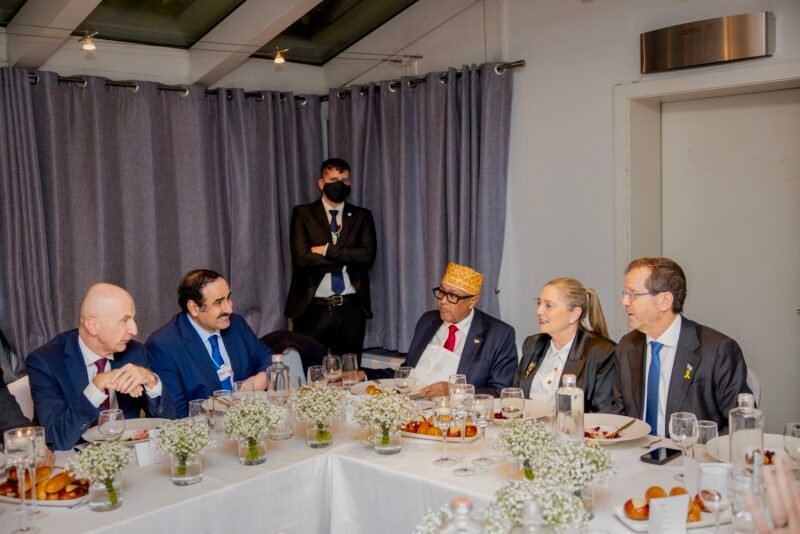
Behind Closed Doors in Davos: Inside Somaliland’s High-Level Diplomatic Dinner – The Power Circle Hosting Somaliland’s President.
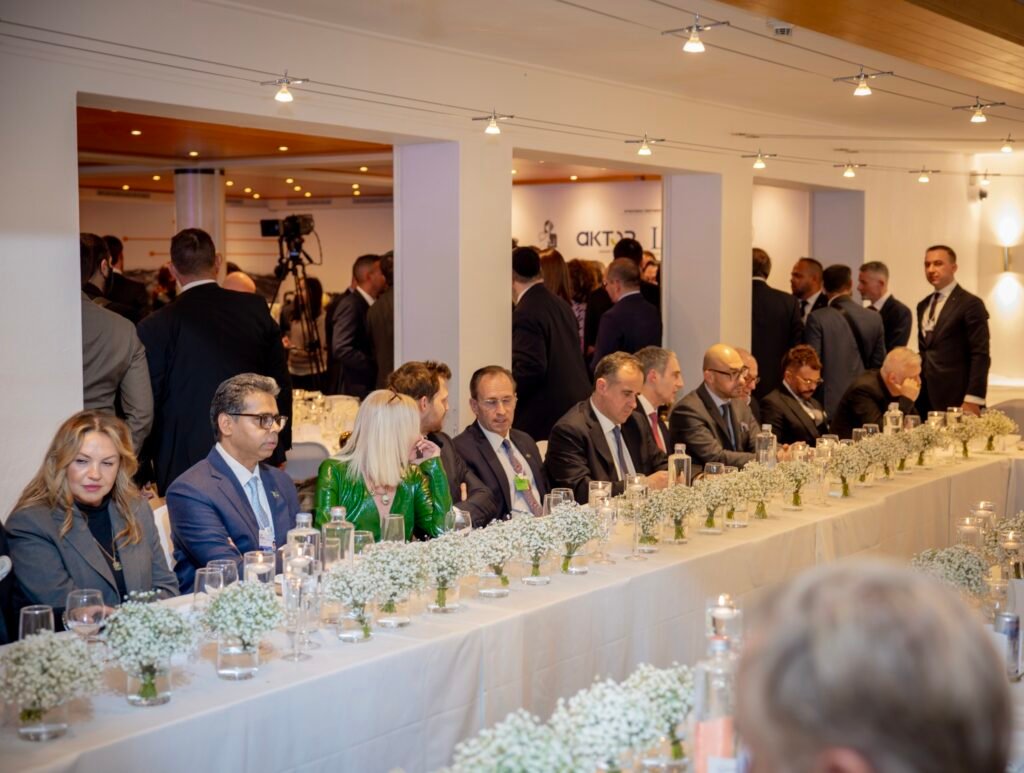
As global leaders gathered in the Swiss Alps for the World Economic Forum, one private dinner quietly redrew the diplomatic map for Somaliland.
President Abdirahman Mohamed Abdillahi “Irro” hosted a special, invitation-only dinner with Israeli President Isaac Herzog on the sidelines of the Davos summit — a meeting that symbolized the rapid deepening of relations between Somaliland and Israel following Tel Aviv’s formal recognition of Somaliland’s sovereignty.
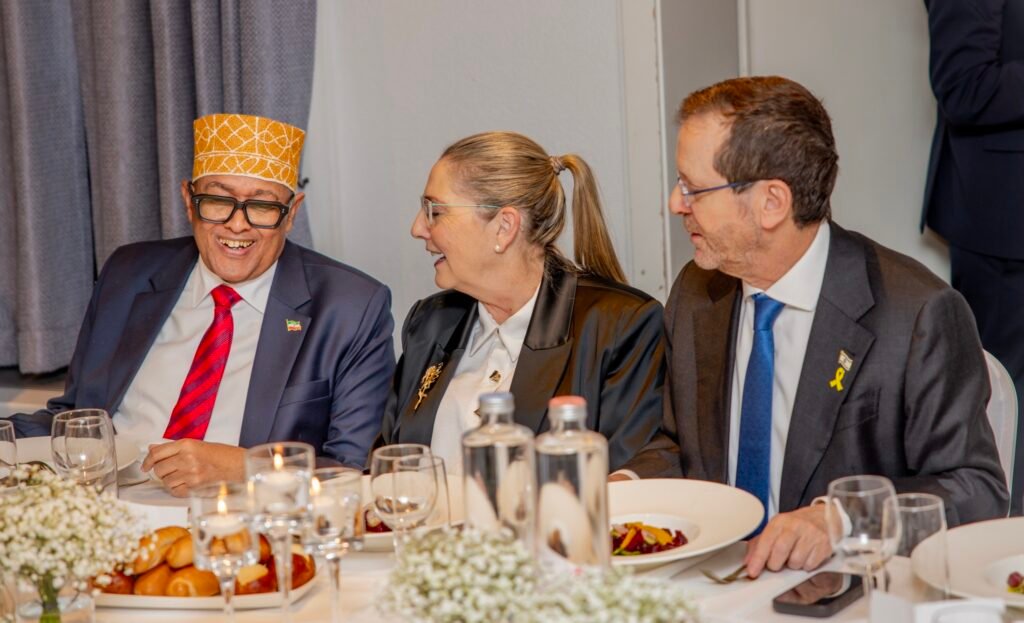
President Herzog publicly welcomed the establishment of diplomatic ties and expressed hope that cooperation between the two nations would expand for the benefit of both peoples, marking one of the highest-profile international endorsements Somaliland has received in three decades.
But the significance of the evening extended well beyond the two presidents.
In a statement posted on Facebook, President Irro confirmed that the dinner was attended by senior politicians and international business leaders, including Eric Trump, son of U.S. President Donald Trump. Although not a government official, Eric Trump serves as Executive Vice President of the Trump Organization and is a close political adviser to his father. He had earlier attended a separate Davos event hosted at the same venue titled “Global Changes and Opportunities in Emerging Markets.”
While the full guest list was not officially released, WARYATV independently analyzed photographs shared by President Irro, cross-referencing publicly available data and verified attendee databases linked to the event. That review confirmed the presence of several prominent figures at the dinner.
Among the most notable was Nir Barkat, Israel’s Minister of Economy and Industry and a former mayor of Jerusalem, who plays a central role in Israel’s economic diplomacy and engagement with international investors.
The gathering also included some of the world’s most influential business leaders:
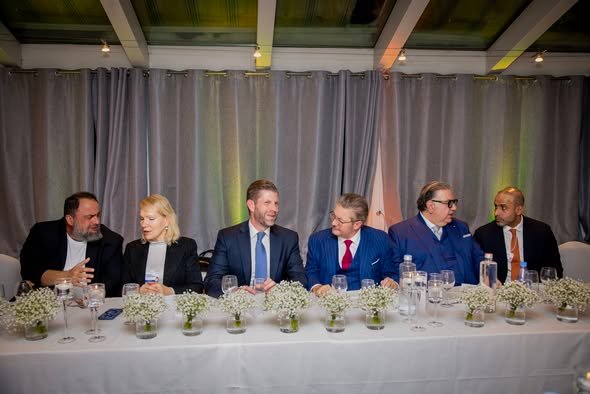
Margarita Louis-Dreyfus, Chairwoman of the Louis Dreyfus Group, one of the largest global commodity trading firms spanning agriculture, energy and logistics.
Luděk Sekyra, a Czech billionaire with major investments in real estate, infrastructure and European philanthropy.
Evangelos Marinakis, Greek shipping magnate, energy transport tycoon and owner of Premier League club Nottingham Forest.
John S. Koudounis, President and CEO of U.S.-based Calamos Investments, a major institutional asset management firm.
Rainer Schorr, founder and chairman of European real estate group Standard Land SA.
Nadav Sarfir, a senior official at Israel’s Ministry of Technology and Innovation.
The dinner was part of a broader program hosted by Greek House Davos, led by Eirini Vantaraki, who has described the platform as a hub for discreet strategic meetings away from public panels. According to Vantaraki, Davos is increasingly shifting from open forums to closed-door encounters where political power, capital, and long-term strategy converge.
What remains unclear is the full scope of discussions or the complete list of attendees, as the gathering was private and by invitation only.
What is clear, however, is the geopolitical signal it sent.
The presence of Somaliland — a state not yet broadly recognized internationally — among senior Israeli officials, figures tied to U.S. political power, and global economic elites underscores a striking diplomatic development: Somaliland is no longer waiting outside the room. It is being welcomed inside it.
And in Davos, that distinction matters.
Somaliland
President Irro Promotes Somaliland’s Strategic Role at Davos
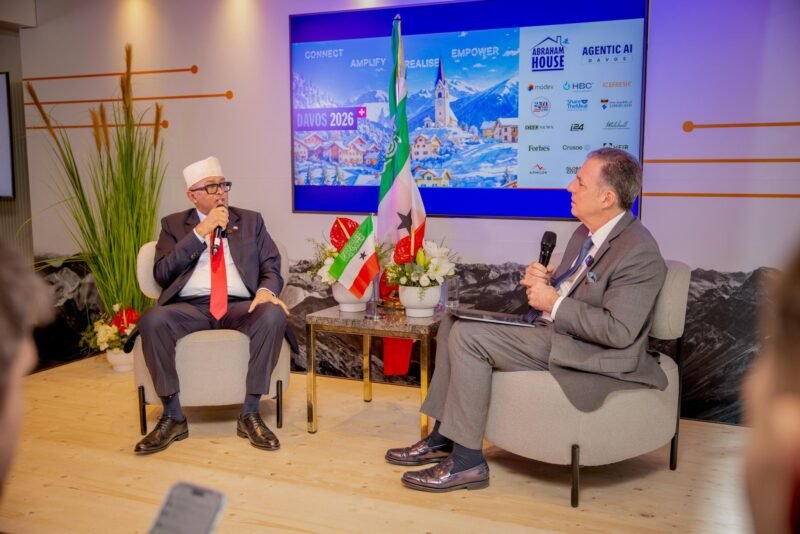
DAVOS, Switzerland — The President of the Republic of Somaliland, Abdirahman Mohamed Abdullahi “Irro,” used his ongoing participation at the World Economic Forum (WEF) in Davos to position Somaliland as a stable, democratic and investable partner in one of the world’s most volatile regions.
Speaking to international leaders and global investors attending the forum, President Irro called for a reassessment of Somaliland’s role on the international stage, highlighting the territory’s record of more than three decades of peace, democratic governance, security and political stability in the conflict-prone Horn of Africa.
In an in-depth interview with journalist John Defterios and during meetings on the sidelines of the annual gathering, the president described Somaliland as a strategic gateway linking Africa, the Middle East and major global trade routes. He detailed investment opportunities across key sectors including livestock, agriculture, fisheries, minerals and oil.
President Irro stressed that Somaliland is seeking partnership, not dependency.
“We are not asking for help. We have come to offer cooperation based on peace, democracy and shared opportunities,” he said.
He told investors that Somaliland offers political stability, legal certainty, and security — rare attributes in the Horn of Africa — making it a reliable destination for long-term investment.
The president also welcomed Israel’s recent recognition of Somaliland, thanking the Israeli government for what he called a courageous and historic decision. He urged other nations to follow suit and recognize what he described as the “real political realities” in the region.
Irro further outlined Somaliland’s growing regional cooperation, including plans to serve as a Red Sea trade corridor for Ethiopia and to expand cross-border trade, energy links and infrastructure development.
In his closing remarks, the president called on the international community to reward Somaliland’s long-standing stability with full international recognition, enabling it to formally participate in the global economy.
“Together, let us turn our commitment into progress, our power into shared prosperity and historic cooperation,” he said.
Somaliland
Somaliland, Israel, and the Power Table of Davos
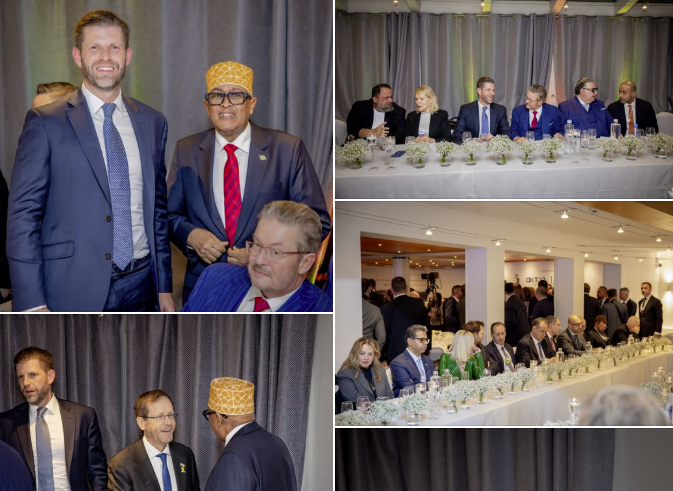
From Recognition to Alliance: Somaliland President Irro Meets Israeli President Isaac Herzog and Eric Trump in Davos, Marking a New Strategic Era.
In the rarefied corridors of Davos, where power is often exercised more quietly than it is announced, President Abdirahman Mohamed Abdulaahi “Irro” delivered a moment that may redefine Somaliland’s global posture.
At a historic dinner meeting in Switzerland, the President of the Republic of Somaliland sat alongside the President of the State of Israel, Isaac Herzog, and Eric Trump, son of the President of the United States — a tableau that speaks louder than any formal communiqué.
This was not ceremonial diplomacy. It was strategic choreography.
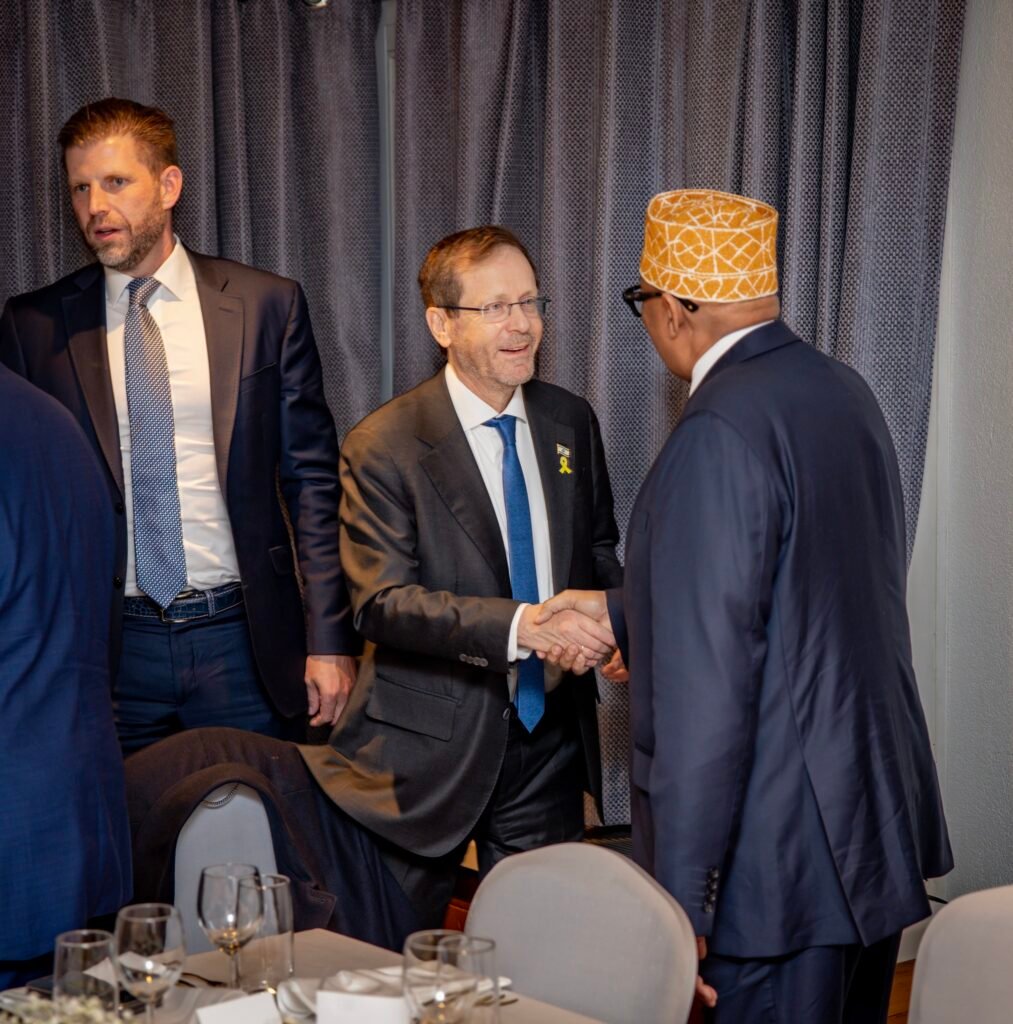
The meeting marked the first high-level public engagement following Israel’s official recognition of Somaliland on December 26, 2025 — a decision that shattered three decades of diplomatic inertia and repositioned Somaliland firmly within the architecture of emerging global alliances.
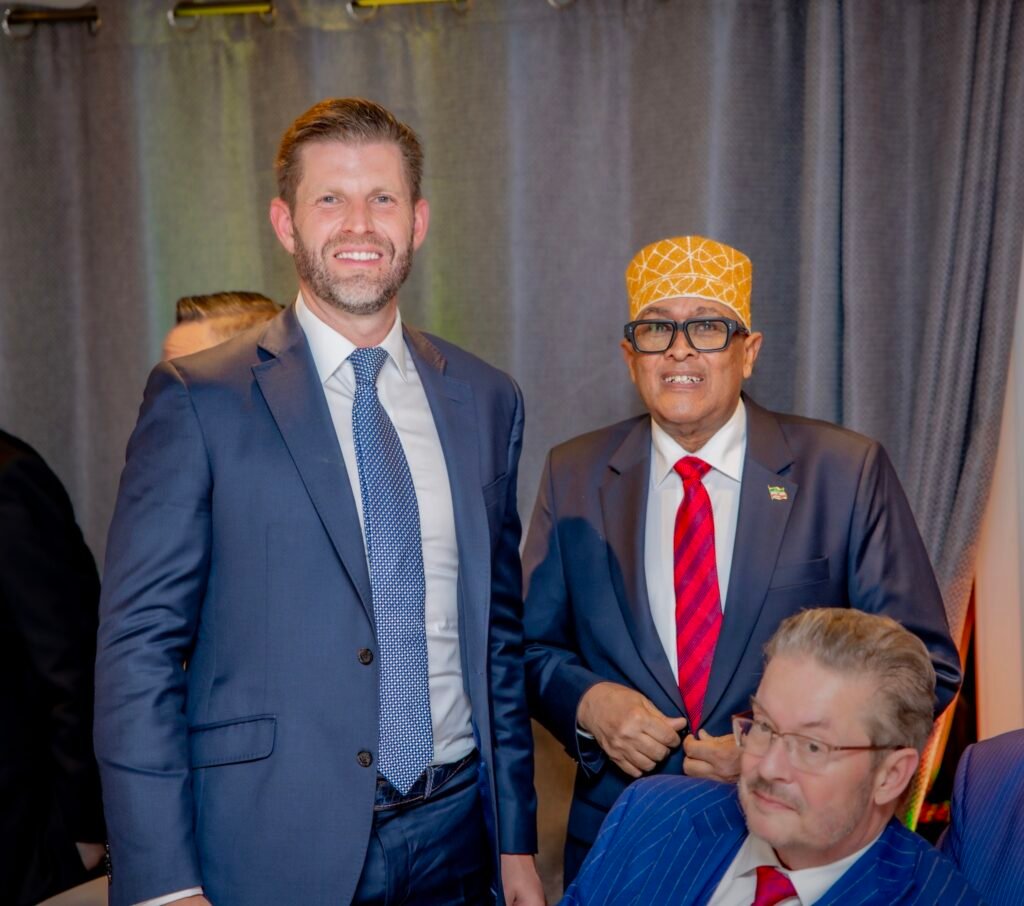
Held in an atmosphere described by officials as one of mutual respect and trust, the talks moved swiftly beyond symbolism into substance. Both presidents discussed the foundations of a state-to-state partnership, exploring cooperation across a spectrum of strategic sectors: security and defense, technology and cyber capabilities, agriculture and water management, healthcare, energy development, and mining.
These are not soft fields. They are pillars of state-building.

For Somaliland, the significance is twofold. First, it confirms that recognition is not an endpoint but an entry point into the world’s strategic systems. Second, it demonstrates that Somaliland is not approaching global partnerships as a passive beneficiary, but as a contributing actor — offering stability, maritime security, and geopolitical relevance in one of the world’s most sensitive corridors: the Horn of Africa and the Red Sea basin.
President Irro used the occasion to formally thank Israel’s government and people for what he described as a “historic and courageous” recognition — one that affirmed, after 34 years, the right of Somaliland’s people to stand as a sovereign state within the international community.
But the message went deeper.
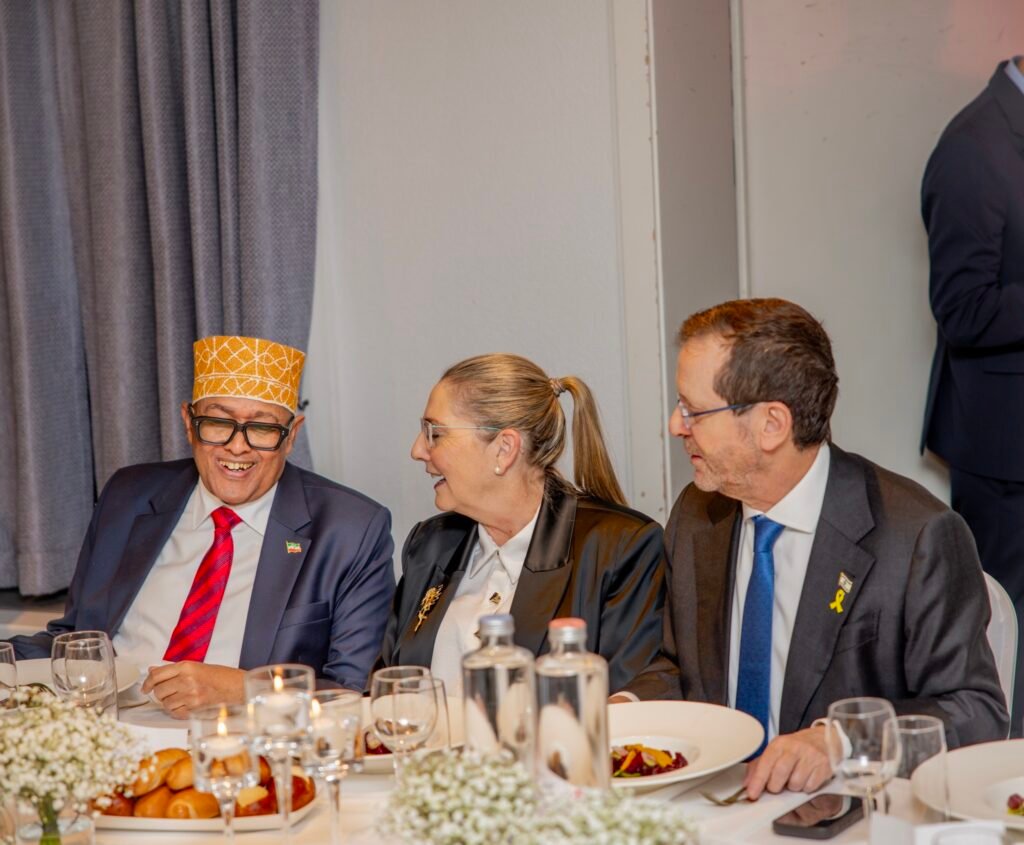
By emphasizing Somaliland’s identity as a peace-loving, democratic, and law-abiding state, Irro positioned the country not merely as a recipient of diplomatic goodwill, but as a model of post-conflict statehood in a region too often defined by instability.

The presence of Eric Trump at the table added a powerful layer of geopolitical subtext. While not a government official, his proximity to the U.S. presidency — particularly in the current political climate — underscores Somaliland’s expanding visibility within influential American political and strategic circles. In diplomacy, access often precedes alignment.
This meeting, in effect, signaled that Somaliland’s recognition by Israel is not an isolated diplomatic event. It is the opening move in a broader realignment — one that connects Hargeisa to Jerusalem, Washington, Abu Dhabi, and beyond.
What emerged in Davos was not simply a dinner.
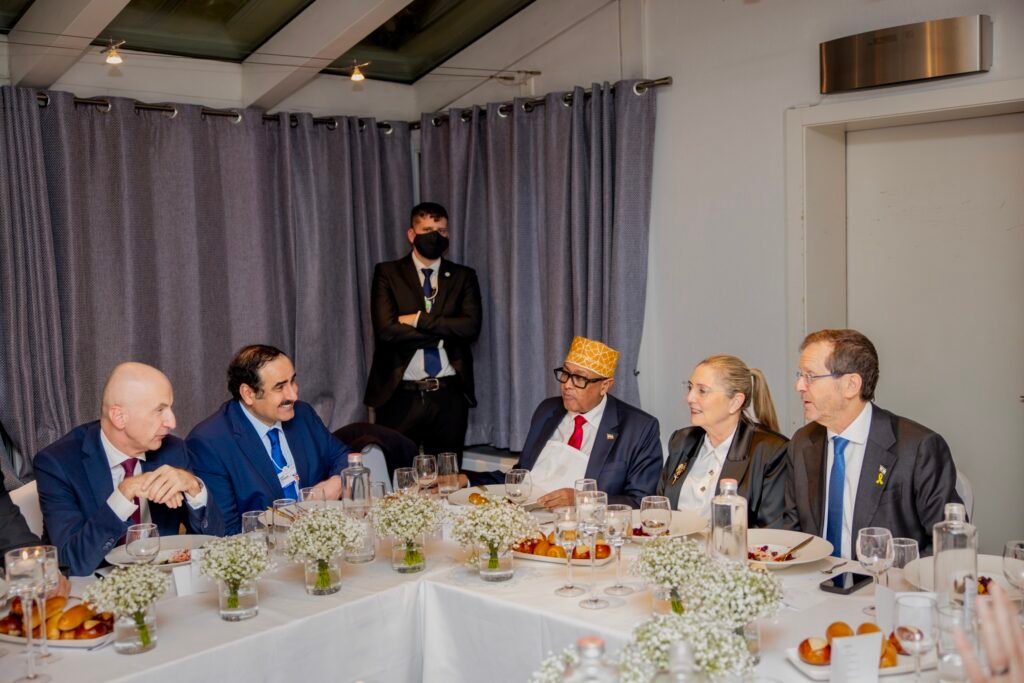
It was a declaration of arrival.
Somaliland is no longer negotiating its existence. It is shaping its alliances.
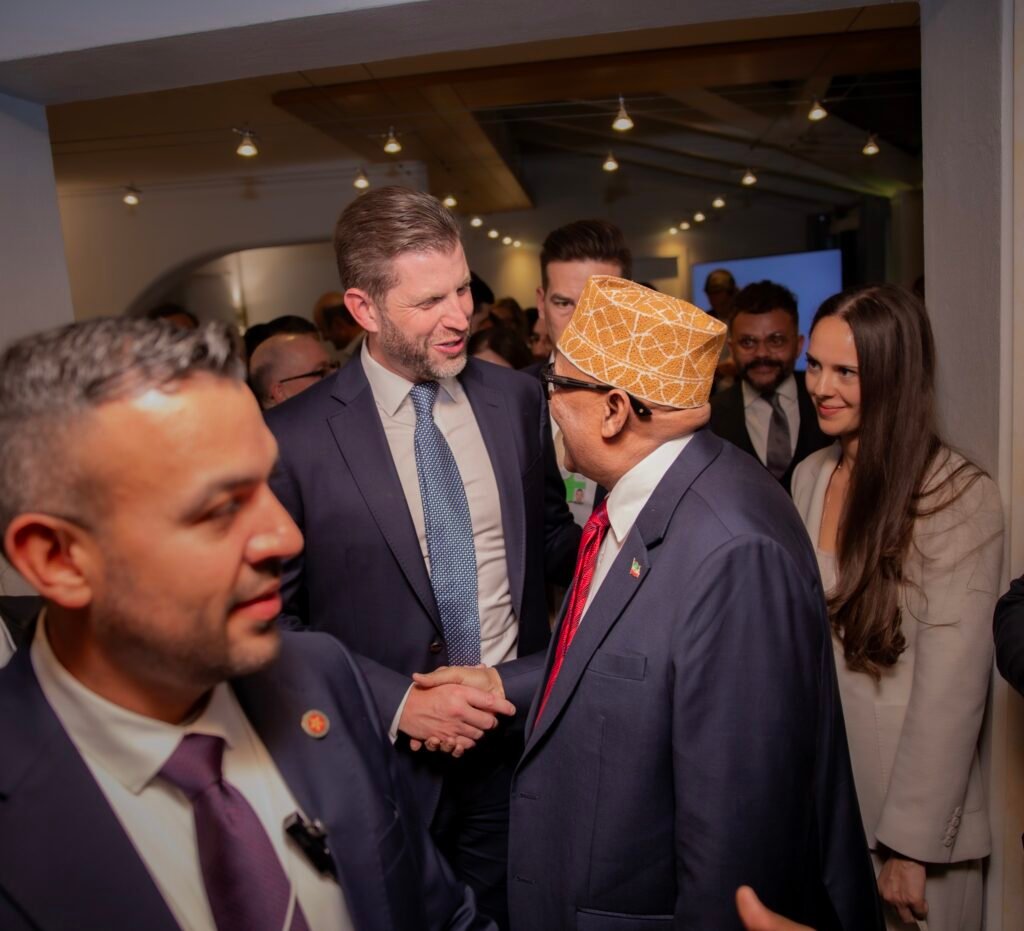
As global power centers quietly recalibrate their priorities around security corridors, maritime routes, and technological resilience, Somaliland is positioning itself where it belongs: at the table where the future is being written, not merely read.
And in the thin Alpine air of Davos, one truth became unmistakably clear:
The Republic of Somaliland has entered its era of strategic diplomacy — not as a hopeful claimant, but as a recognized, reliable, and rising state.
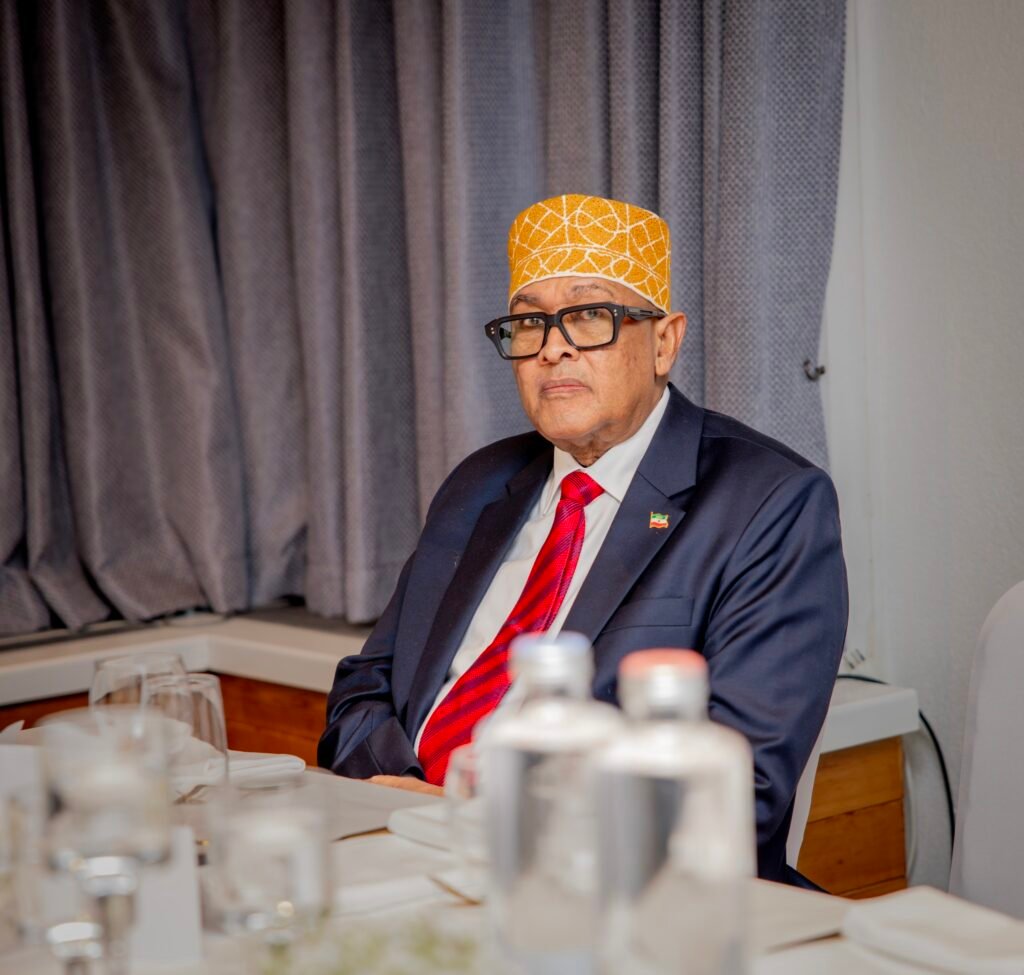
-

 Analysis11 months ago
Analysis11 months agoSaudi Arabia’s Billion-Dollar Bid for Eritrea’s Assab Port
-

 Interagency Assessment2 months ago
Interagency Assessment2 months agoTOP SECRET SHIFT: U.S. MILITARY ORDERED INTO SOMALILAND BY LAW
-
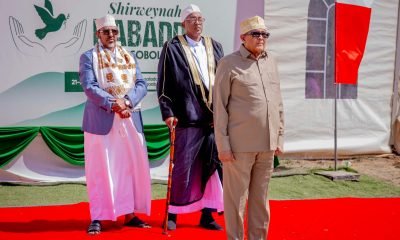
 Somaliland3 months ago
Somaliland3 months agoSomaliland Recognition: US, UK, Israel, and Gulf Bloc Poised for Historic Shift
-

 EDITORIAL1 year ago
EDITORIAL1 year agoDr. Edna Adan Champions the Evolving Partnership Between Somaliland and Ethiopia
-
Top stories2 years ago
Ireland, Norway and Spain to recognize Palestinian state
-

 Russia-Ukraine War6 months ago
Russia-Ukraine War6 months agoFibre-Optic Drones Shift Ukraine’s Drone Warfare
-

 ASSESSMENTS10 months ago
ASSESSMENTS10 months agoOperation Geel Exposes the Truth: International Community’s Reluctance to Embrace Somaliland as a Strategic Ally
-
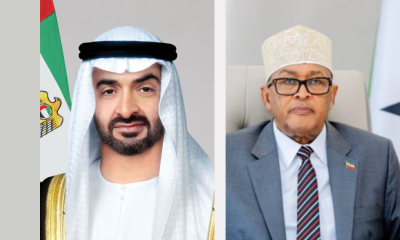
 Somaliland1 year ago
Somaliland1 year agoSomaliland and UAE Elevate Ties to Comprehensive Strategic Partnership


